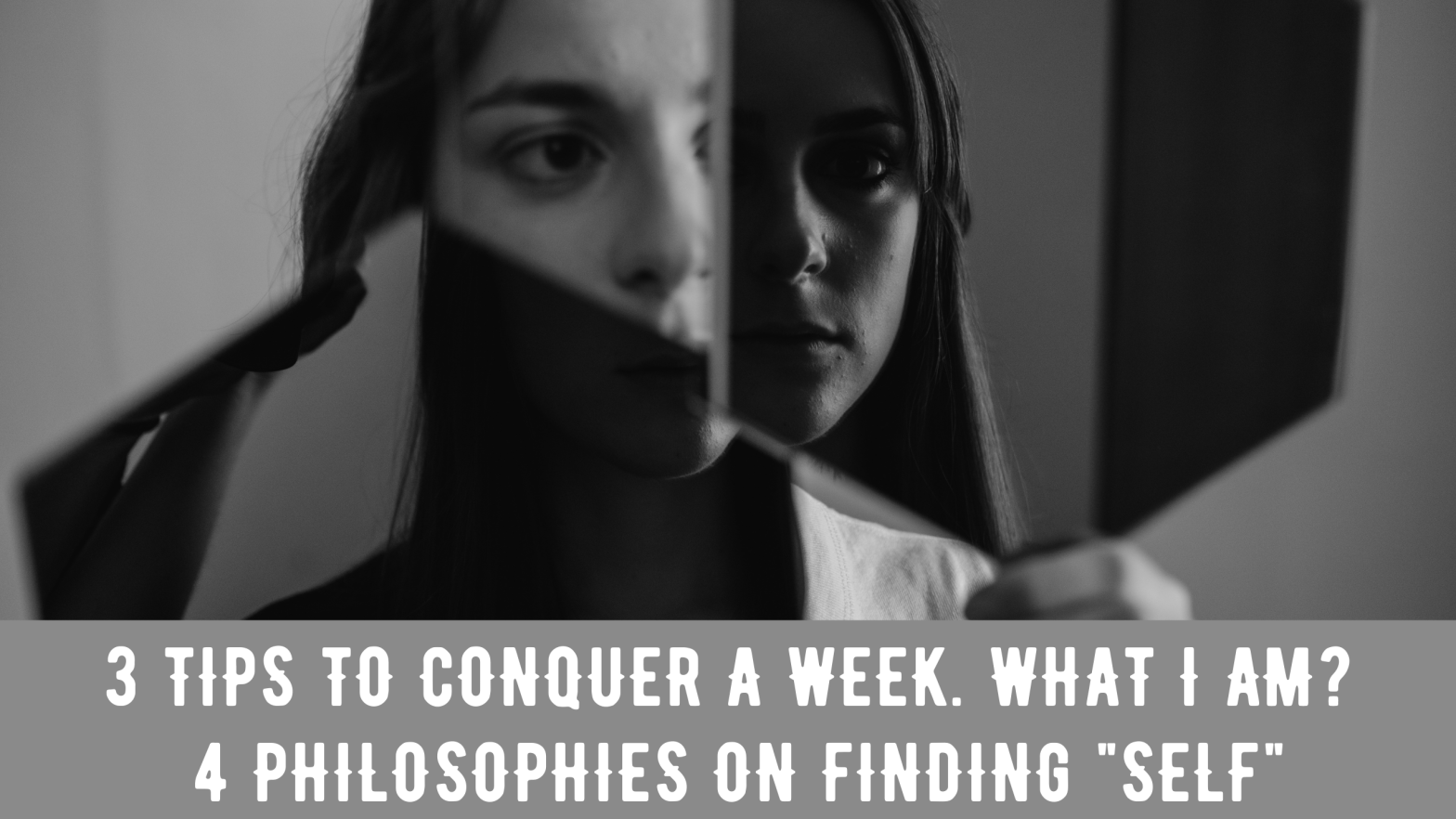Some would say you are godly like heaven, while others would say, you are vicious like venom.
You don’t need to be the right or don’t even try to be the right person for anyone. Because in the very beginning it’s your credibility that makes you matter something to someone and in the end also it’s only the credibility of a person that matters.
Be someone that the one who loses you says,’ they missed out on their fate’ and the one who earns you says, ‘you are worth the wait.’
Dedicate your one week to know which philosophy does you follow. then, you ready to search yourself, which is a life long process.
3 Philosophies on finding “self”
I. “Self” is individuality
We feel that we must differentiate ourselves from others, endlessly. We have a model of self where the self is kind of like an avocado. We have a pit inside of us.
The pit is our self, our essence, our identity.
It is the thing to which we must above all be true. And of course, very importantly, we see that pit as unique. So that everything we do we want to show to reflect that pit, to reflect that self. And we want it to be unique through exercising our rights.

Where some other people frequently have a flexible self, whereas it’s a different kind of self. It is a self that’s oriented more to duty than to rights, for instance. And very importantly, it is not, it does not have a cultural mandate to be different and to be unique. So if you ask, are they individuals? Of course, they’re individuals.
Are they different? Of course, they are different. But of course, for them, it’s like, well I’m different, why would make a big deal of that, right? The difference is, how much significance do we attach to that difference? In other words, do we think it’s very important to differentiate ourselves from others? So one of the ways that we do that, of course, is through choice.
When we had to serve our elders somebody from a more flexible-self, or interdependent culture, would say, it’s just your duty. And so for them, it’s like, they help their elderly parent. They just go take care of the elderly parent because that’s their duty. For them, this is really liberating. You just go do it and you don’t expect it to be an expression of yourself. It’s just what people do. From their point of view, we have made things very, very hard for ourselves to demand that everything should be an expression of inner nature.
II. “self” is an authenticity
We often like to think that the way to become a good person is to look within and find one’s true self, the sort of natural self that we have. And once you’ve found that self, that natural thing that you are, the goal is to be sincere and authentic to that true self.
So if we stick to what we naturally are meant to be, the gifts that we’re naturally endowed with, that’s how we can be a sincere, authentic person would say, that sounds good but is on the contrary extremely restraining-and constraining to what we could do.

The fact is, if we’re messy creatures, as many of them would say, what we perhaps are in our daily lives are simply people whose emotions are being pulled out all the time, by people we encounter. And over time, those responses fall into kind of ruts and patterns that can just be repeated.
And if ‘being the one who you already are’ is the goal, you should be trying to break those patterns, alter those patterns, and change the way you interact in the world. And if you’re simply saying, should be who I naturally am meant to be, well, what you’re probably doing is simply continuing to follow a bunch of patterns, probably destructive to yourself, and almost assuredly destructive to those around you. The idea is constant work working through the process of ever trying to. Create works within which we can flourish.
III. “self” is flexible, not real
There’s this notion in Buddhist psychology of egoless-ness or no-self. And most people misinterpret that, as Freud actually did, most people misinterpret it to think that, oh, Buddhism is saying, we don’t need the ego at all, or we don’t need the self at all. Like get rid of it, and then we’re one with everything, and that’s it. And think that’s wrong. Obviously, we need our egos.
A professor of Buddhism at Columbia, professor of religion at Columbia. He had a Mongolian teacher in the 1960s who used to say to him about this topic of egoless-ness or selflessness: “It’s not that you’re not real.”
Of course, you’re real, you have a self. But people like you, secular people who don’t really understand, think that they’re really real.”
And what Buddhism is teaching is that belief in your own really because realness is misguided. We take ourselves more seriously than we need to.

The self is not as fixed as we would like to think. The ego is born out of fear and isolation. It comes into being when self-consciousness first starts to come when you’re two or three years old, and you start to realize, oh, there’s a person in here. And you’re kind of like trying to make sense of everything, who you are, who are those parents there.
The ego is a way of organizing oneself, and it comes from the intellect as the mind starts to click in. And for many people, it stays in a kind of immature place where our thinking mind, our intellect, is defining for ourselves who we are. Either taking all the negative feedback, like I’m not good enough, and the ego fastens onto all the negativity. Or the positive, the affirmation, like oh, I’m really something.
And the ego likes certainty, it likes security, it likes repetition. And so it’s always reinforcing its own vision of itself. And that starts to restrict. It starts to restrict us, to confine us, to make us think that we know ourselves better than we actually do.
BONUS PHILOSOPHY
“self” is consciousness
One of the problems we have in discussing consciousness scientifically is that consciousness is irreducibly subjective. Consciousness is what it’s like to be you. There’s an experiential internal qualitative dimension to any physical system, then that is consciousness.
Someone like Francis Crick said famously. you’re nothing but a pack of neurons. And that misses the fact that half of the reality we’re talking about is the qualitative experiential side. So when you’re trying to study human consciousness, for instance, by looking at states of the brain, all you can do is correlate experiential changes with changes in brain states.
You can say that heads being up is just the case of tails being down. But that doesn’t reduce one side of reality to the other. I’m not arguing that consciousness is a reality beyond science, of the brain.

What I am saying, however, is that the self is an illusion. The sense of being, a thinker of thoughts in addition to the thoughts, an experiencer in addition to the experience.
This is the sense that we all have of riding around inside our heads as a kind of a passenger in the vehicle of the body, that’s where most people start when they think about any of these questions.
Most people don’t feel identical to their bodies. They feel like they have bodies. They feel like they’re inside the body. And most people feel like they’re inside their heads.
Now that sense of being a subject, a locus of consciousness inside the head, is an illusion. We know that everything you experience, your conscious emotions, thoughts, moods, and the impulses that initiate behaviour, all of these things are delivered by myriad different processes in the brain that are spread out over the whole of the brain.
They can independently erupt. We have a changing system, we are a process. And there’s not one unitary self that’s carried through from one moment to the next, unchanging. And yet we feel that we have this self that’s just this centre of the experience.
Those were the 4 philosophies to find “self” and build credibility within oneself.

Thank you for choosing to follow my blog! I really appreciate your support and look forward to reading more of your posts!
LikeLiked by 2 people
My pleasure Ena!
LikeLiked by 1 person